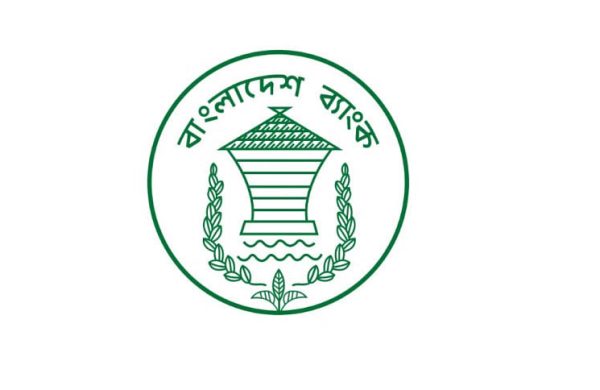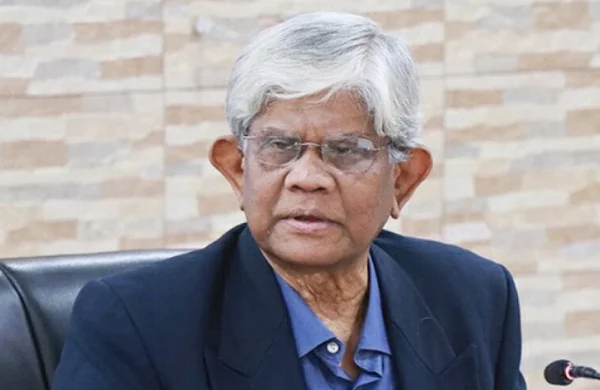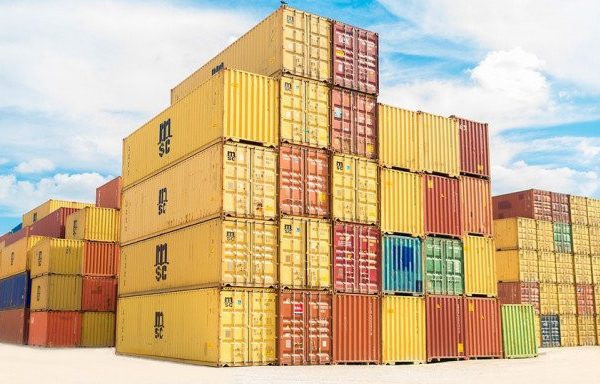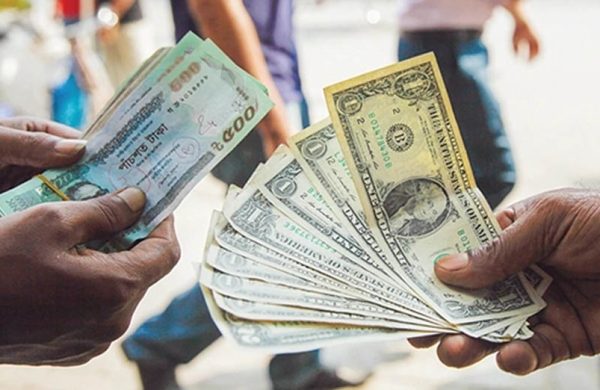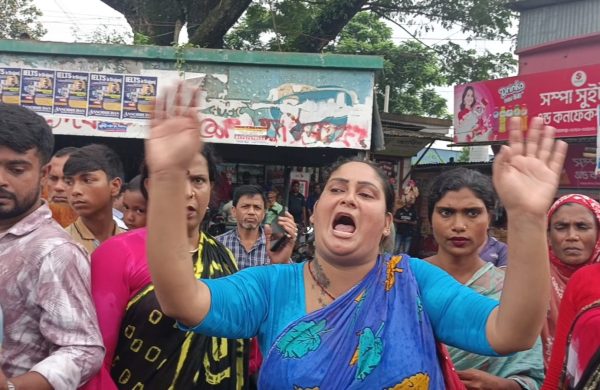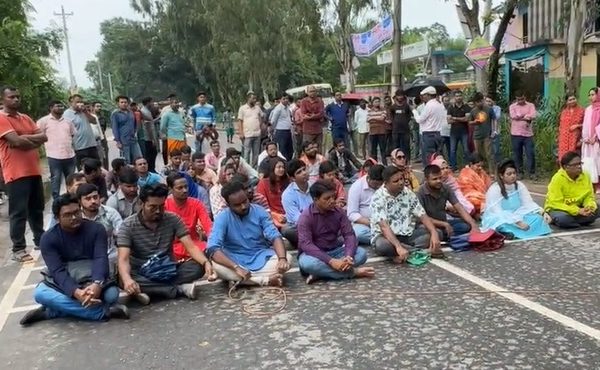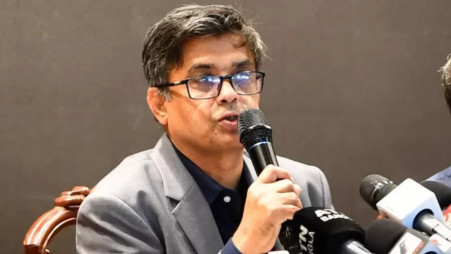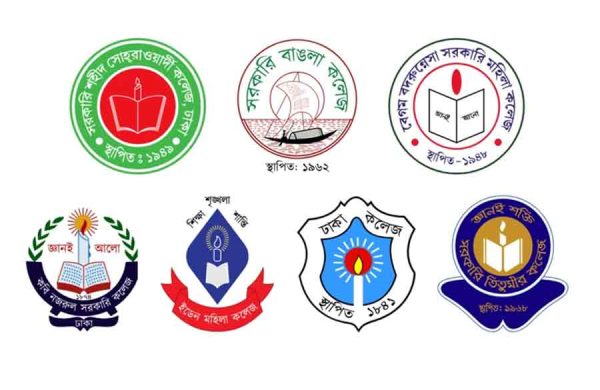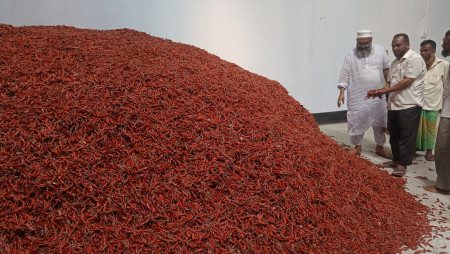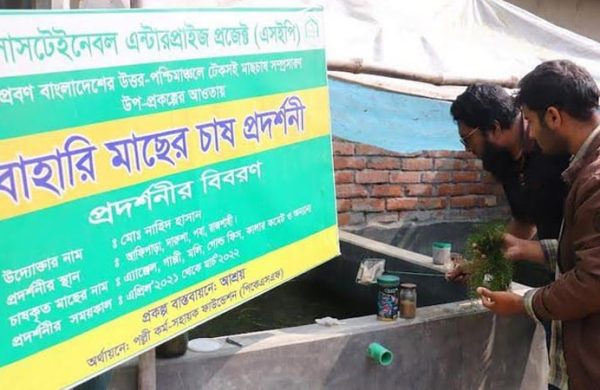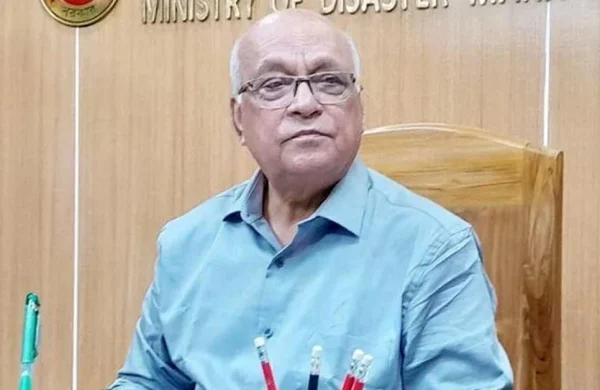Kolkata’s ‘mini Bangladesh’ suffers Rs1,000cr losses after a year of anti-Bangladesh policies
- Update Time : Monday, August 4, 2025
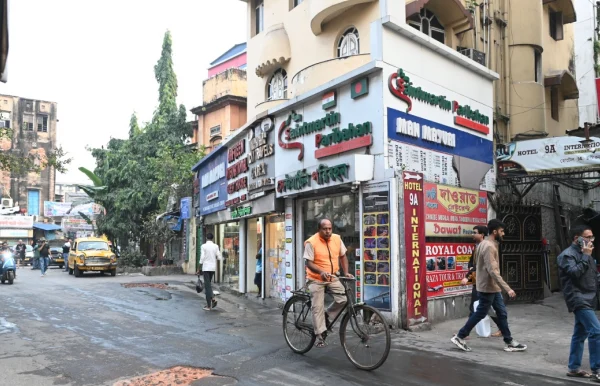
TDS Desk:
Kolkata’s “mini Bangladesh” has suffered up to Rs1,000 crore in losses after India’s anti-Bangladesh sentiment surged in the wake of Sheikh Hasina’s fall from power in August last year.
After Hasina fled to New Delhi, India stopped issuing visas for Bangladeshis seeking to travel to the neighbouring country, including medical visas. The JN Ray Hospital in Kolkata even declared that it would no longer treat Bangladeshi patients, while the All Tripura Hotel and Restaurant Owners’ Association announced that Bangladeshi citizens would no longer be allowed to stay in hotels in that state.
A year later, the consequences continue to linger, reports the Times of India (TOI).
Kolkata used to be a bustling hub for Bangladeshi tourists, travelling for medical treatments and business, but all would eventually lead to one location: New Market’s Clock Tower, flanked by Free School Street and Marquis Street.
This spot – locally known as “mini Bangladesh” has long been a favourite of Bangladeshi tourists. It offers affordable hotels and eateries serving “Opaar Bangla” cuisine (food and dishes from Bangladesh), and is close to major railway stations and bus terminals, while providing access to medical facilities.
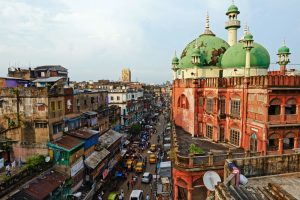
While a conservative estimate by several traders’ associations pegs the losses faced by “mini Bangladesh” in one year at over Rs1,000 crore, many say the actual numbers may be a lot more.
“Business from hotels, eateries, retail, travel agents, forex, medical care, and transport is worth Rs3 crore daily. If we factor in the losses in New Market and Burrabazar, it will cross Rs5,000 crore,” Hyder Ali Khan, general secretary of the Free School Street Traders’ Association, told TOI.
Several businesses in the area have either shut shop or are focusing on locals. “Even a year ago, multiple buses would arrive with tourists at the same time, making parking difficult. Today, several days pass by without a single tourist arriving,” said Prabir Biswas, manager of a Marquis Street travel company.
Eateries, currency exchange biz, homestays most affected
Currency exchange businesses dealing in Bangladeshi taka now lie dormant.
Mohammad Intezar, secretary of the Currency Exchangers Association at Marquis Street, said they are struggling to stay afloat. “We were completely dependent on Bangladeshi tourists.”
According to traders, nearly 40% of the area’s small and mid-level restaurants have closed shop since the crisis began. Several big eateries are now operating on shoestring budgets.
“Business has dropped to 20% and it’s becoming unviable for most of us. We are hanging on somehow, waiting for a turnaround,” NC Bhowmik, owner of Radhuni Restaurant, told TOI.
Hasina’s fall in a mass uprising last year and India’s reaction was actually a double whammy for the area’s businesses, first copping a body blow during the Covid-19 pandemic.
“Expecting a boom after the pandemic, many of us had invested heavily. We even took loans to renovate and modify our businesses,” said the younger brother of a popular Marquis Street eatery owner. “The business was doing well before this turmoil.
“My elder brother has fallen sick because of this stress. We have to pay EMIs of Rs1.5 lakh, and there’s barely any income,” he added.
Meanwhile, beyond big businesses, the informal economy built around tourism influx – home-cooked food providers, homestay operators, tour guides – has crumbled.
Hundreds of locals, who worked as hotel staffers, cooks, drivers and in retail shops, have been badly hit.
“I bought two commercial vehicles when demand surged after the pandemic. The business was flourishing, and I often had to turn away customers.
“Now I barely get five to six bookings a month – and that too from locals who don’t want to pay as much. I have to pay EMIs,” said Elliot Road resident Farhan Rasul.


